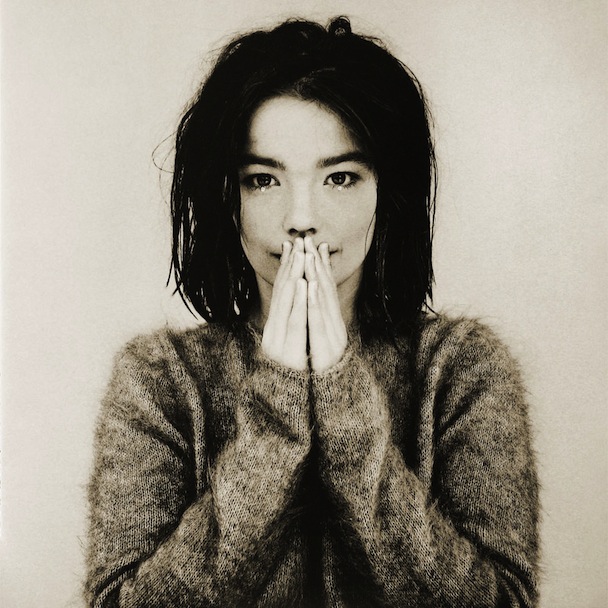5. Debut (1993)
The title rather self-consciously marks this as the starting point, but the Sugarcubes had made Björk a known quantity. After casting about for collaborators — she approached 808 State’s Graham Massey, jazz multi-instrumentalist Corky Hale and the Art Ensemble of Chicago — Björk settled on Nellee Hooper, best known for his association with Massive Attack. While many of the songs on Debut were composed years earlier, the difference between this and the rather stiff art-pop of the Sugarcubes is astounding. Though her electronic bent gets the most attention, it’s her interest in jazz that courses through the set. Opener “Human Behaviour” (her first single and first UK hit) rolls along on irresistable loping bass and timpani, with Björk riding behind the beat. The chill portrait “Venus As a Boy” plays like a globe-trotting torch song, combining Talvin Singh’s tabla and string arrangement (recorded in India) with plummy, laconic bass. Featuring a sort of call-and-response between singer and brass (and nothing more), “The Anchor Song” is a pure jazz tone poem, as if Rahsaan Roland Kirk wrote a tribute to the Icelandic shore. And, of course, there’s “Like Someone in Love,” the album’s lone cover and a Jazz Age standard. She acquits herself well, working her way toward unruly passion over an arrangement of Hale’s harp, synth and backgrounded street noise. It’s a fine counterpoint to the previous track, “There’s More to Life Than This,” an anti-party song that features club ambience and perhaps the worst pronunciation of “ghettoblaster” ever.
Hooper’s trip-hop and house contributions don’t play quite as well, twenty years on; as usual for Björk, her best songs tend to achieve synthesis. (The ebullient “Big Time Sensuality,” with its roller-rink organ and joyous high notes, is a major exception.) But even in the presence of four-on-the-floor beats and Chicago-style piano, she creates distinctive documents. Nautical imagery (boats, anchors, jumping into the sea) recurs frequently, as if, even at the outset of her ambitious course, Björk wanted nothing more than to escape. In a sense, she had: her arrangements on Debut showcase her impeccable vocal chops, too often shouted down in the past by reverb-heavy pop/rock production. She sounds utterly free. And the public responded, beyond her label’s wildest expectations: all five singles were British hits, and one (“Big Time Sensuality”) scraped into the US Hot 100 thanks to a video that received major play on MTV. She mapped her ambition well, and fortified her position on the follow-up.






